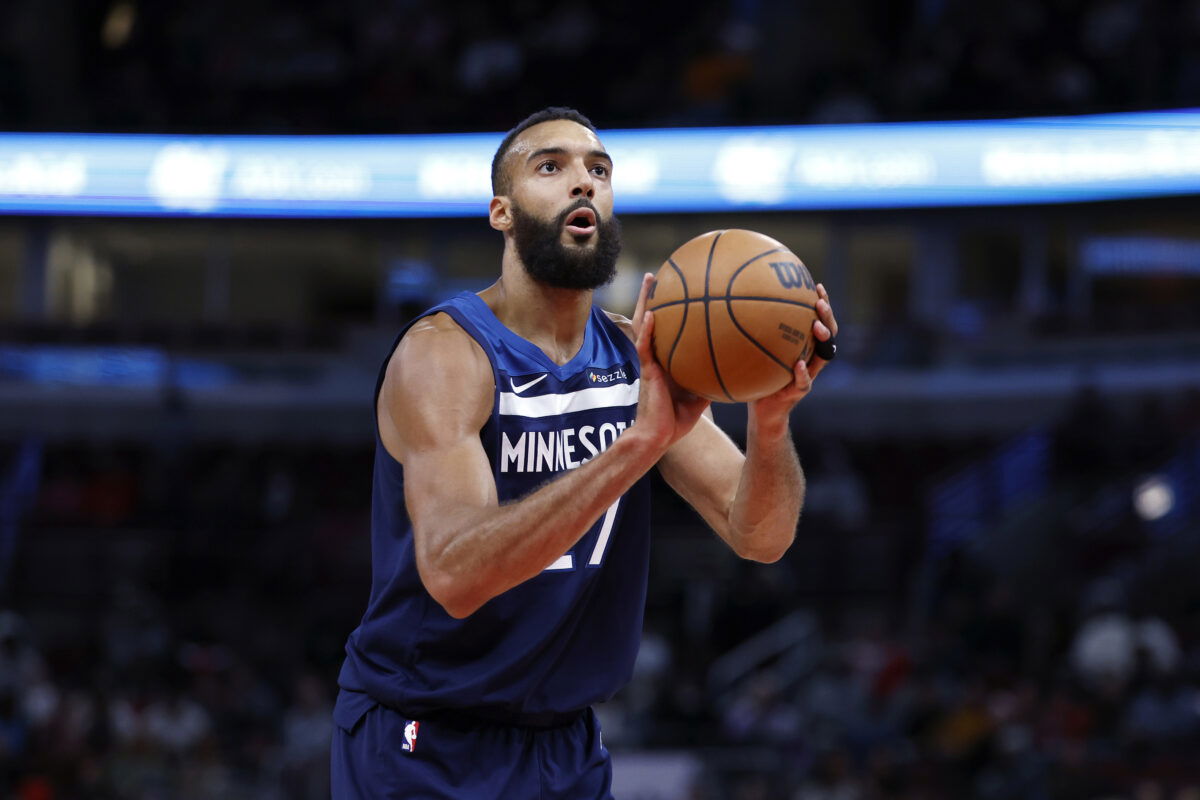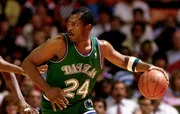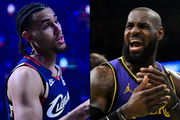
Imago
Oct 16, 2024; Chicago, Illinois, USA; Minnesota Timberwolves center Rudy Gobert (27) shoots a free throw against the Chicago Bulls during the first half at United Center. Mandatory Credit: Kamil Krzaczynski-Imagn Images

Imago
Oct 16, 2024; Chicago, Illinois, USA; Minnesota Timberwolves center Rudy Gobert (27) shoots a free throw against the Chicago Bulls during the first half at United Center. Mandatory Credit: Kamil Krzaczynski-Imagn Images
Rudy Gobert’s trade to the Minnesota Timberwolves marked a pivotal shift in his career, ushering in milestones and challenges. His debut on October 20, 2022, was powerful, where he posted 23 points and 16 rebounds, setting the tone for his new journey. Just days later, he followed up with 22 points and 21 rebounds against the Lakers, showcasing his dominance early on. However, his season wasn’t without friction—an altercation with teammate Kyle Anderson on April 9 raised questions about team dynamics.
Watch What’s Trending Now!
Despite the bumps, Gobert proved his worth, capturing his fourth Defensive Player of the Year award, solidifying his legacy as “The Stifle Tower.” This October, Gobert secured a three-year, $110 million extension, validating his value to the team. So far this season, he’s been a standout, scoring 17 points with 14 rebounds against the Nuggets and delivering a strong 15-point, 12-rebound, 4-block performance against the Raptors. Now that we’ve seen his journey with the Timberwolves, let’s dive into the family roots that shaped him into the player he is today.
ADVERTISEMENT
Where is Rudy Gobert from? What’s his nationality?
Rudy Gobert-Bourgarel was born on June 26, 1992, in Saint-Quentin, Aisne, in northern France, making him French by nationality. He was born to father, Rudy Bourgarel, and mother, Corinne Gobert. Growing up as the youngest of three brothers, Rudy faced significant challenges in his early years. After his parents separated in 1995, he and his siblings were raised by Corinne, who worked as a hairdresser to support the family on her own. Unfortunately, they didn’t receive the full support of their extended family.
But despite all the challenges, he had a bright future ahead of him. He followed in his father’s footsteps. Rudy Bourgarel was a former basketball player who played college basketball in America for the Marist Red Foxes and also played in Paris and Saint-Quentin, France. He was almost drafted by the NBA in 1989, but the French National basketball team forced him to return to play for them. However, he didn’t have much career in all his French clubs. And today his son has fulfilled his dream of playing in the NBA.
Top Stories
Ex-ESPN Anchor Calls Out a Hidden Caitlin Clark Problem Few Are Acknowledging

“Kind of Scr—d Steph”: Insider Reveals Warriors Front Office’s Dirty Laundry Amid Giannis Trade Preparation

Who Is Mark Aguirre’s Wife? Everything to Know About Ex-Mavericks Star’s Marriage and Family

Was Jaylon Tyson Fined $35K for Disrespecting LeBron James? Fact-Checking Viral Rumor

Austin Reaves Gets Luka Doncic, LeBron James Love Amid Lakers Return Buzz

ADVERTISEMENT

ADVERTISEMENT
Despite his father being a hooper, it was his mother who was the cornerstone of his success. “From day one, before I could protect myself, my mom was protecting me. The things she did for me and my siblings … it’s incredible. Financially, we didn’t have a lot. My dad went back to Guadeloupe when I was two, and my mom had to handle a lot of responsibilities.” Rudy stated. And today she can be proud of her son. As you now know his family, let’s explore how France gives back to him.
One interesting thing about him is that he was once nicknamed “The French Rejection” and is now celebrated as a national hero in France. His success in the NBA and contributions to French basketball have made him an icon, symbolized in his hometown of Saint-Quentin by a striking mural titled “A KID FROM SAINT-QUENTIN.” The mural showcases a giant portrait of a young boy on the left and a larger-than-life image of Rudy on the right, capturing his journey from a small-town kid to a global basketball star. But this star has more to say about his roots.
ADVERTISEMENT
What is Rudy Gobert’s ethnicity and religion?
His heritage is a blend of Creole and French backgrounds. His father, Rudy, was born in Guadeloupe and is of Creole ethnicity, while his mother, Corinne, is white French, born in Saint-Quentin. Which makes his ethnicity mixed. Now, talking about his religion, there are no official reports about it, but he was raised in a Christian household and accustomed to celebrating Christmas with family. Rudy experienced discrimination from some relatives due to his mixed race.
Reflecting on those painful experiences, Rudy shared, “After I was born, certain relatives made it very clear to her that she wasn’t welcome to come to Christmas dinner if she brought me along. She could come on her own. But she couldn’t bring ‘that child.’ She couldn’t bring Rudy.” These experiences have undoubtedly shaped his resilience and determination in both life and basketball. That’s it from his roots, but now let’s take a look at his college career.
ADVERTISEMENT
Which college did Rudy Gobert attend?
Rudy Gobert never went to college, but not in the U.S., anyway. His path was different. While most NBA players come through the NCAA, Gobert stayed in France. He started young, playing in Saint-Quentin, a quiet town with deep basketball roots. In 2003, he joined JSC St-Quentin, just ten years old, lanky but locked in. Later, he moved to Saint-Quentin BB, where he sharpened his game more seriously. By 2007, he was ready for something bigger. That’s when Cholet Basket came calling.
Cholet’s training center was no joke, strict, focused, intense. It’s where Rudy really started to turn heads. No dorm rooms, no frat parties, no March Madness. Just morning drills, team buses, and long gym hours. He wasn’t chasing a degree, he was chasing greatness. In 2010, he represented France in the FIBA Europe Under-18 Championship. Didn’t just show up, dominated. Led the team in points and rebounds. That tournament put his name on NBA radars.
So no, Gobert didn’t attend college. But he did go through something just as hard, maybe harder. He took the pro route early, built his game in European gyms, not American arenas. That decision shaped everything. No detours. No distractions. Just a ball.
ADVERTISEMENT
ADVERTISEMENT
ADVERTISEMENT
ADVERTISEMENT